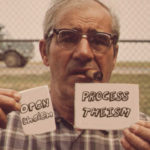We run our website the way we wished the whole internet worked: we provide high quality original content with no ads. We are funded solely by your direct support. Please consider supporting this project.
Is There Room for Doubt in Faith?
Many Christians today assume that faith is the antithesis of doubt. In this view, a person’s faith is thought to be strong to the extent that they don’t question their beliefs or struggle with God in whom they believe. As widespread as this view is, I believe it is unbiblical and profoundly unhelpful.
My experience as a pastor and professor has taught me that when people assume faith and doubt are incompatible, they invariably try to avoid the latter. Indeed, when faith is equated with psychological certainty, the experience of cognitive dissonance—an experience that is the precondition for almost all learning—easily gets interpreted as something that is evil and therefore is to be avoided at all costs. For obvious reasons, those who are afflicted with this unfortunate model of faith understandably find it hard, if not impossible, to honestly acknowledge, let alone feel the full force of, the merits of perspectives that challenge their belief system. They rather quickly embrace whatever “solutions” that are available to them, not because these perspectives adequately address the challenges, but simply because they are then enabled to enjoy the certainty that their views are correct.
To challenge this tendency, consider the name God gave his covenant people, “Israel.” According to the Genesis narrative, this name goes back to a rather bizarre event that took place at a turning point in Jacob’s life. This forefather of the nation of Israel apparently found himself wrestling with the Lord, in the form of a man, for an entire night (Gen. 32: 24-32). Oddly enough, we are told that the Lord “could not overpower him” and that Jacob would not let the man go until he “blessed” him (v 25). It was because of this tenacity that the Lord renamed him “Israel” (Yisra’el), which, according to this narrative, signifies one who struggles with God (v. 28). It was for this reason that God’s people were called “Israelites”—people who tenaciously wrestle with God, just as their forefather had done.
The scriptures are filled with examples of Jacob-like wrestling matches with God. The biblical “lament” genre – including the “complaint against God” tradition – is found throughout the Old Testament. Many Psalms boldly raise questions, express doubts and even level accusations about God’s faithfulness while challenging the justice of his providential rule (e.g. Psa 89: 19-44). Similarly, as his pain and anger grew, Job did not stop short of accusing God of grossly mistreating him and others. Though God eventually chastised him for his theological misstatements (for which Job himself repented, see Job 42), God nevertheless commended the honesty and gutsiness of his talk. Unlike his pious-sounding “friends,” Job’s speech was honest and authentic (kûn, 42:7).[1] Yahweh clearly appreciates raw truth more than pious platitudes. Similarly, the prophet Habakkuk boldly charged God with treating the wicked better than the righteous (e.g. Hab. 1:3-4, 13), while Jeremiah had the audacity to accuse God of deceiving and torturing his own people (Lam.). Most importantly, Jesus himself endorses this tradition both in his teachings (e.g., Luke 11:5-9; 18:1-8) and by example (i.e., in his “cry of dereliction” on the cross).
While expressing doubts and challenging God may be antithetical to the modern, popular notion of faith, it is perfectly compatible with the biblical understanding. The essence of “faith” in the biblical tradition is not blind, unthinking submission or even an unwavering psychological certainty. Rather, faith is fundamentally a covenantal concept that expresses one’s willingness to trust another and to be trustworthy in relation to another.
—If you want to explore this topic more, check out Benefit of the Doubt.
Click here for a sermon series on this topic.
[1] The Hebrew word kûn has the connotation of being “straight.” See R. L Harris, G. L Archer and B. K. Waltke, Theological Wordbook of the Old Testament, 2 vols. (Chicago: Moody, 1980), I:433-34. For further discussion on the theology of Job and the role Job’s inaccurate depictions of God play, see G. A. Boyd, Satan and the Problem of Evil: Constructing a Trinitarian Warfare Theodicy (Downers Grove, IL: InterVarsity, 2001), 221-26, 403-06. On Job as an example of the OT complaint-against-God (or “faithful revolt”) tradition, see Kynes, “Trials of Job.”
Category: General
Tags: Benefit of the Doubt, Doubt, Faith, Jacob, Q&A, Wrestling with God
Topics: Faith & Doubt
Related Reading

What is the significance of Exodus 3:18–4:9?
The Lord tells Moses that the elders of Israel will heed his voice (vs. 18). Moses says, “suppose they do not believe me or listen to me…” (4:1). God performs a miracle “so that they may believe that the Lord…has appeared to you” (vs. 5). Moses remains unconvinced so the Lord performs a second miracle…

How do you respond to Romans 8:29?
“For whom he foreknew he also predestined to be conformed to the image of his Son, in order that he might be the firstborn within a large family.” One of the greatest treasures given to believers when they open their hearts to the Lord is the promise that they shall certainly be “conformed to the…

Process Theology & Open Theism: What’s the Difference?
Question: When ReKnew talks about Open Theism is it a mistake for people to equate it with Process theology, and if so what are the defining differences? I guess I am starting to lean toward Dr. Boyd’s thoughts for all things theologically egg-heady, so I thought I would ask the question. Your ministry has been freeing…

What Does Greg Think About _________________?
Since the launch of the new website yesterday, I’ve been browsing around the various topics to see what I can find. You can click here to join me. This is awesome. If you want to know what Greg has to say about the nature of the future and God’s knowledge of it, you can find…

What is the significance of Jeremiah 3:19–20?
“I thought how I would set you among my children…And I thought you would call me, My Father, and would not turn from following me. Instead, as a faithless wife…you have been faithless to me…” If the future is eternally and exhaustively settled, and if God therefore knows it as such, he could not have…

Summer Q&A!
Greg Boyd and Paul Eddy recently hosted a Summer Q&A for all three services at Woodland Hills Church. If you’ve ever wanted to sit and listen to these guys talk about a wide range of topics off the top of their heads, this is your chance! Good stuff folks! Our friend Jesse Ward was kind…

